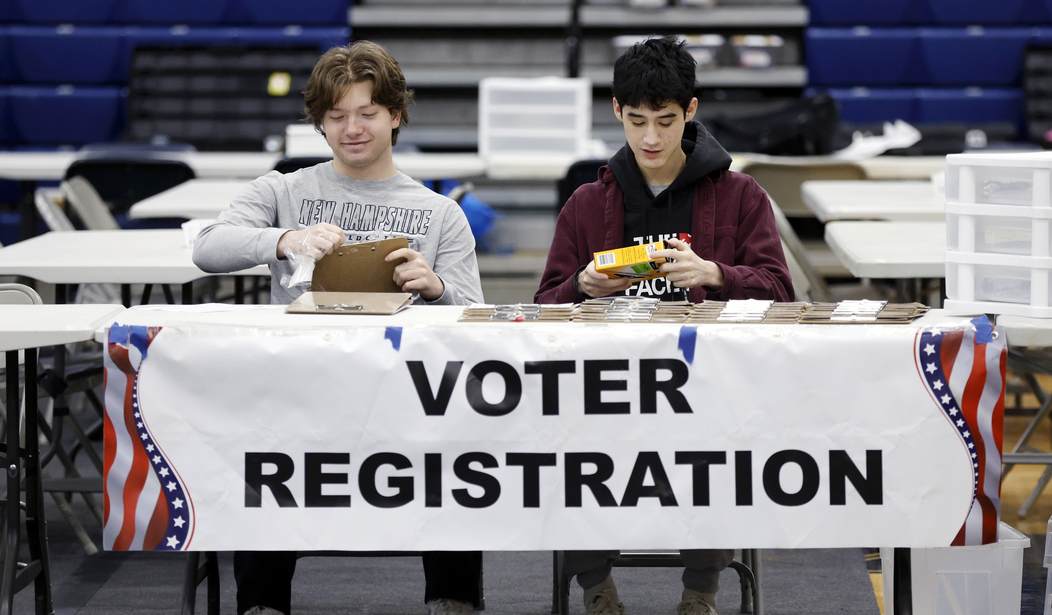Earlier this year, Aaron Strauss, an influential data scientist, warned major Democratic donors in a confidential memo that has since been obtained by the Washington Post to refrain from registering young and black voters ahead of the 2024 election. Why? Because they're likely going to vote for Trump.
A confidential memo circulated among top Democratic donors has sparked a furious debate in Democratic circles about whether to narrow the focus of voter registration efforts to avoid signing up likely Republicans.
For decades, nonpartisan groups allied with the Democratic Party have run wide-ranging efforts aimed at increasing voter registration among people of color and young people — groups that tend to lean Democratic but have historically voted at lower rates than older and White people.
In recent years, however, there has been a marked shift among the roughly 1 in 5 citizens of voting age who are unregistered toward Republicans, raising fresh questions about how much boosting nonpartisan voter registration could help presumptive GOP nominee Donald Trump heading into November.
“Indeed, if we were to blindly register nonvoters and get them on the rolls, we would be distinctly aiding Trump’s quest for a personal dictatorship,” Strauss warned in the memo, in which he cited recent polling showing Trump's strength with unregistered voters.
He also warned that efforts to gain Democratic votes among younger and non-Black people of color were often expensive — costing more than $1,200 per net vote in 2020, by one estimate — because the groups now include so many non-Democrats. Among voters of color, he wrote that “only African American registration is clearly a prime opportunity,” adding that netting Democratic voters among Black people cost approximately $575 per vote in 2020.
He called on donors to nonpartisan nonprofits to also donate to political groups that focus voter registration spending on “specific, heavily pro-Biden populations” like Black Americans, while using more targeted techniques among other groups to filter out likely Trump supporters. Campaigns, parties or super PACs can more directly target who they try to register. They frequently hire canvassers who wear candidate or issue-focused clothing or use other messaging to attract their voters and repel others.
The Biden campaign, however, may not believe there's a problem. According to the Washington Post, the Biden campaign "has largely operated on the assumption that current public polls which show alarming drops in support among base voters will shift over the coming months, a fact that could change the calculations for bulk voter registration."
Matt Barreto, a pollster who has been working with Biden’s team, has argued that simply using early candidate support or party preference polling can create a misleading picture of unregistered voters, since they favor Democratic policies on issues like gun regulation, climate change and abortion. Like many other Democrats, he expects support for Biden to rise considerably above where current public polling shows him with Black and Latino voters.
“From a nonpartisan perspective, we should help close the turnout gap, which means if Latinos, blacks, and Asian Americans are registered at lower rates, then we need to increase registration,” Barreto argued. “The unregistered people of color are still leaning Democratic. They might need more of a push. But they are not leaning in the opposite direction.”
That may not be accurate. As we've previously reported here at PJ Media, Joe Biden has crippled the Democratic coalition. According to Adam Carlson, a data analyst with the Brunswick Group, polls indicate that a large racial realignment is happening. Financial Times columnist and chief data reporter John Burn-Murdoch later confirmed this and argued that minority voters, once reliably Democrat, may, at the very least, become swing voters, if not Republican voters. "The left’s challenge with non-white voters is much deeper than it first appears," he said. "A less racially divided America is an America where people vote more based on their beliefs than their identity. This is a big challenge for Dems."










Join the conversation as a VIP Member